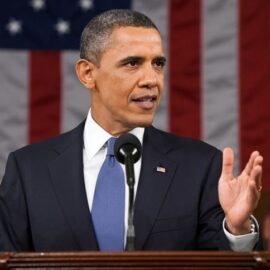

This article is an excerpt from the Shortform book guide to "Billion Dollar Whale" by Tom Wright and Bradley Hope. Shortform has the world's best summaries and analyses of books you should be reading.
Like this article? Sign up for a free trial here.
How did whistleblower Xavier Justo help to expose Jho Low? What did he do to create suspicion around Low and his fraudulent dealings?
Billion Dollar Whale by Tom Wright and Bradley Hope explores the story of Jho Low’s fraudulent business dealings, including whistleblower Xavier Justo’s role in exposing Low’s schemes. The authors explain how Justo’s actions created suspicion around Low and led to investigations.
Read on to learn about the role Xavier Justo played in exposing Jho Low, according to Wright and Hope.
The Story of Whistleblower Xavier Justo
Billion Dollar Whale by Tom Wright and Bradley Hope details the exploits of Jho Low, a Malaysian financier who allegedly stole billions of dollars from Malaysian sovereign funds. In the book, they explain how whistleblower Xavier Justo threatened to expose Low’s fraudulent business dealings after the money Low took from 1Malaysia Development Berhad (1MDB) pushed the fund further into debt.
In the book, Wright and Hope explain that Low had to pay out those who had worked with him on two of his other fraudulent deals—the IPIC deal and the Mubadala deal. Sending such large sums of money to so many people scattered across the globe necessitated a complex network of shell companies and offshore accounts to avoid arousing suspicion. Low struggled to manage these payments and was often late or forgetful making them. Additionally, as the number of illicit transactions increased, Low became lazy, often doing little to hide the nature of the transfers. These practices began to arouse suspicion at the banks Low worked with.
(Shortform note: Low’s struggle to repay his associates in some ways mirrors the collapse of Bernie Madoff’s Ponzi scheme. During the 2008 recession, many of Madoff’s investors tried to pull out of the scheme, but Madoff lacked the funds to repay them all. Madoff became overwhelmed and confided in his sons, who reported his crimes. While Low would make no such confession, like Madoff he too became ensnared in his own complex financial web.)
Justo Threatens to Leak Emails
According to the authors, Low’s negligence began to put the entire scheme at risk. In 2013 a disgruntled former PetroSaudi employee named Xavier Justo reached out to Low’s associates. Justo threatened to leak thousands of emails detailing Low’s illicit dealings to the press and legal authorities unless he was paid the two million dollars he felt he was owed.
(Shortform note: While releasing the emails would have been a major threat to Low and company, in doing so Xavier Justo would likely have implicated himself in the scheme too. By threatening his former employers, Justo inadvertently created a situation resembling a prisoner’s dilemma. The prisoner’s dilemma is a famous thought experiment that explains why individuals in a group may sometimes choose to betray each other instead of acting in their shared best interest. Just as in the prisoner’s dilemma, both Low and Justo chose to betray each other—Justo by leaking information, and Low by refusing to pay Justo. Again, just as in the prisoner’s dilemma, both groups paid a price for their refusal to cooperate.)
Wright and Hope note that two million dollars would have mattered little to Low, and yet instead of paying Justo off, Low ignored his demands. Eventually, Justo began reaching out to journalists in an attempt to get them to pay him for the evidence he’d collected.
(Shortform note: Within the field of journalism, writers debate whether it’s ethical to pay sources like Xavier Justo for their stories. Many journalists believe it’s unethical to pay sources, as doing so creates a conflict of interest in which the source has a financial incentive to exaggerate their story to make it more attractive to publications. However, some journalists argue that when breaking a particular story helps expose corruption and wrongdoing, it can be worth paying sources in order to publicize critical information.)
Just as he could have easily paid Xavier Justo off, Low had plenty of money that he could have used to cover 1MDB’s debts and pay off his accomplices. However, distracted by his luxurious lifestyle, Low allowed these problems to fester while continuing to spend wildly at casinos and auctions.
(Shortform note: While caught up in extraordinary financial circumstances, Low succumbed to an ordinary problem: procrastination. According to experts, procrastination is a vicious cycle—by seeking to avoid an uncomfortable situation or task, you put it off, which only causes the problem to escalate, making it more difficult and uncomfortable to deal with later. Unfortunately for Low, he was unable to break this cycle before his problems came to a rapid boil.)
Low and His Associates Began to Attract the Attention of Journalists
Low’s friendships with the rich and famous, as well as his extravagant parties, brought him an increasing amount of attention from journalists and paparazzi. According to Wright and Hope, as Low’s lifestyle brought him into the spotlight, he attempted to shift the public narrative around his wealth. Just as he had done with his boarding school friends, Low tried to convince the media that his family was much wealthier than they really were. While Low had previously attempted to brand himself as a dealmaker in order to build a network, now that he was established, his goal was to disguise the source of his wealth. Attributing his money to inheritance served that purpose.
(Shortform note: Low’s attempt to change the media narrative around his wealth was an ultimately unsuccessful public relations strategy. Instead of changing the story, public relations experts advise that during a crisis, it can be helpful to engage with criticism and focus on positive news stories. According to these principles, Low’s denial may have only made his situation worse, as it did little to calm the negative buzz around him.)
As Wright and Hope note, in spite of Low’s best efforts, journalists began to investigate both Low’s debauchery and 1MDB’s dealings, with some stories beginning to link the two, albeit without strong evidence. Notably, The New York Times published a front-page story on Low, linking him to Najib. None of the media coverage of Low was able to conclusively implicate him in any wrongdoing until Xavier Justo, the disgruntled former PetroSaudi employee, contacted blogger and journalist Clare Rewcastle-Brown. Using Justo’s evidence, Rewcastle-Brown published a story in 2015 detailing 1MDB’s fraudulent deals. As Wright and Hope describe, the story exposed the scandal and kicked off a wave of international investigations.
(Shortform note: Just as Xavier Justo worked with Rewcastle-Brown to publicize Low’s misdeeds, whistleblowers often work with journalists to expose scandal and wrongdoing. These whistleblowers reach out to journalists to help them share information when it isn’t safe for them to do so themselves. In a particularly famous example, Edward Snowden provided journalists with documents that contained details of the US government’s surveillance of its own citizens. While Snowden later chose to reveal his identity, he originally leaked the documents anonymously in an attempt to avoid arrest.)

———End of Preview———
Like what you just read? Read the rest of the world's best book summary and analysis of Tom Wright and Bradley Hope's "Billion Dollar Whale" at Shortform.
Here's what you'll find in our full Billion Dollar Whale summary:
- A chronicle of the rise and fall of Malaysian entrepreneur, Jho Low
- The tactics Low used to succeed as a con man
- The political and financial context for Low's scheme






